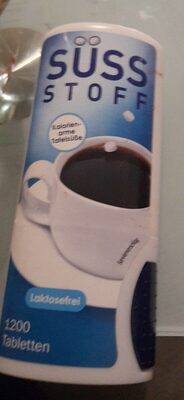
Barcode: 4056489664567
Süßstoff
HALAL
📝 Reason: All ingredients are free from Haram substances and doubtful E-codes, and there is no indication of meat or alcohol use in their manufacturing process.
📄 Certificates: None
Ingredients:
Details
Understanding the Halal Status of Süßstoff
Are you curious about the Halal status of Süßstoff? This popular sweetener has gained traction among those seeking alternatives to sugar. It’s essential to know that all ingredients used in Süßstoff are compliant with Halal requirements. Let’s delve into the detailed explanation of its Halal status, the E-numbers included, and their respective origins.
What is Süßstoff?
Süßstoff, or sweetener in English, typically refers to sugar substitutes that offer sweetness without the calories. It’s particularly popular among those on diets or with specific dietary restrictions. Given its rising popularity, many consumers are keen on ensuring that these products align with their Halal dietary requirements.
Halal Status of Süßstoff
The Halal status of Süßstoff is confirmed as HALAL due to the absence of any Haram or doubtful ingredients. According to our evaluation, all components are free from any pork derivatives, alcohol, or other non-Halal compliant elements.
Ingredients Breakdown
The ingredients found in Süßstoff include:
- Cyclamat (E952)
- Saccharin (E954)
- Natriumbicarbonat (E500)
- Weinsäure (E334)
Let’s explore each ingredient in more detail:
Cyclamat (E952)
Cyclamat is a sweetener that provides sweetness without calories. According to our sources, it is neither Haram nor found among doubtful E-codes. Moreover, there are no issues related to meat or alcohol in its production process.
Saccharin (E954)
Saccharin is another well-known low-calorie sweetener. It has stood the test of time and is widely accepted within food products. Like Cyclamat, there is no indication of Haram elements, making it suitable for Halal dietary needs.
Natriumbicarbonat (E500)
Commonly known as sodium bicarbonate or baking soda, Natriumbicarbonat is widely used in cooking and baking. It is not listed among Haram or doubtful substances and therefore poses no risk concerning Halal compliance.
Weinsäure (E334)
Weinsäure, or tartaric acid, is a naturally occurring acid found in grapes and is commonly used in various food products. Similar to the previous ingredients, it has no association with any non-Halal materials or processes.
Conclusion: Is Süßstoff the Right Choice for You?
Understanding the ingredients and their Halal status is crucial for consumers who adhere to a Halal diet. With Süßstoff being classified as HALAL, free from any Haram substances or doubtful E-codes, it can comfortably fit into a Halal lifestyle. Whether you intend to use it in cooking, baking, or sweetening beverages, you can do so with confidence.
Moreover, always check the labels for certification and consult with trusted sources if you have any dietary restrictions. By being educated on ingredients and their origins, we can make informed choices that respect our dietary laws while enjoying a sweet life with Süßstoff!
